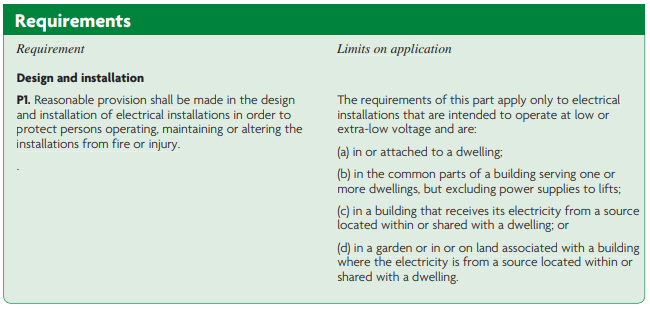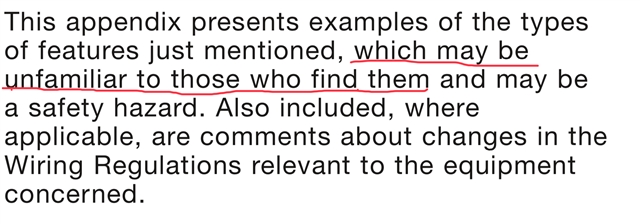I'm trying to understand the scope of Part P as at the extra low voltage end of things it seems a bit contentious. Below is an extract from Approved Part P and it includes extra-low voltage. That raises some questions:
- Would 48V DC be in the scope of Part P as extra-low voltage appears to have no bottom end, just a top end at 50V AC and 120V DC? As an example, installing house wide lighting 'through the fabric of the building' run with a plug in 48V supply (plugged into a socket outlet).
- Lots of people are retrofitting under unit lights into their kitchens which are 12V. They have a plug in transformer, but in many cases the wires are then routed 'through the fabric of the building'. Why isn't this in the scope of Part P if a house wide extra-low voltage lighting system would be?
The second case could arguably be an 'electrical installation' too as although it is plugged in to an outlet, the wires and lights are fixed.
Is it that both of these would be in the scope of Part P, but if both plugged in to existing outlets, they wouldn't be notifiable? If that's the case, in theory they could also both have wired in transformers spurred off an existing circuit as that would only be notifiable if it's an 'addition or alteration to existing circuits in a special location' which if it didn't include a bathroom it wouldn't be. Am I understanding that right?
There's a bit of a can of worms here, but LEDs are becoming so efficient that house wide extra-low voltage systems may start to become more of a thing.





